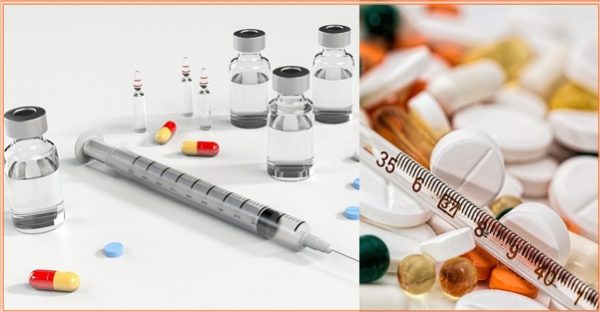Drug Expiration Dates — Do They Mean Anything?

You reach into the medicine cabinet for a Cold medicine and find an expired over-the-counter remedy or some leftover antibiotics.
Now what? You need to know how safety and effectiveness might change for medications that are past their expiration date.
The stamped expiration date on the medicine bottle is more than a year out of date. So, does medicine expire? Do you take it or don’t you? If you decide to take the aspirin, will it be a fatal mistake or will you simply continue to suffer from the headache?
This is a dilemma many people face in some way or another. A column published in Psychopharmacology Today offers some advice.
It turns out that the drug expiration date does stand for something, but probably not what you think it does. Since a law was passed in 1979, drug manufacturers are required to stamp an expiration date on their products. This is the date at which the manufacturer can still guarantee the full potency and safety of the drug.
Most of what is known about drug expiration dates comes from a study conducted by the Food and Drug Administration at the request of the military. With a large and expensive stockpile of drugs, the military faced tossing out and replacing its drugs every few years. What they found from the study is 90% of more than 100 drugs, both prescription and over-the-counter, were perfectly good to use even 15 years after the expiration date.
So the drug expiration date doesn’t really indicate a point at which the medication is no longer effective or has become unsafe to use. Medical authorities state if expired medicine is safe to take, even those that expired years ago. A rare exception to this may be tetracycline, but the report on this is controversial among researchers.
It’s true the effectiveness of a drug may decrease over time, but much of the original potency still remains even a decade after the expiration date. Excluding nitroglycerin, insulin, and liquid antibiotics, most medications are as long-lasting as the ones tested by the military. Placing a medication in a cool place, such as a refrigerator, will help a drug remain potent for many years.
Is the drug expiration date a marketing ploy by drug manufacturers, to keep you restocking your medicine cabinet and their pockets regularly? You can look at it that way. Or you can also look at it this way: The expiration dates are very conservative to ensure you get everything you paid for. And, really, if a drug manufacturer had to do expiration-date testing for longer periods it would slow their ability to bring you new and improved formulations.
The next time you face the drug expiration date dilemma, consider what you’ve learned here. If the expiration date passed a few years ago and it’s important that your drug is absolutely 100% effective, you might want to consider buying a new bottle. And if you have any questions about the safety or effectiveness of any drug, ask your pharmacist. He or she is a great resource when it comes to getting more information about your medications.
So What is the bottom line?
Should patients use expired medications or not? If a medication is needed, and the patient is not able to replace the expired medication, there is no evidence that it is unsafe to take the medication in most cases. However, if a medication is essential for a chronic and potentially life-threatening disease, for example, a heart condition, seizure, or life-threatening allergy, it is probably wise to get a new prescription once expired.
If an expired medication is for a minor health problem, for example, for a headache, hay fever, or mild pain, it may also be safe to take it, although drug potency might not be 100 percent. Research has shown many military stockpile medications retained 90 percent of their potency in their original stock bottle. However, storage conditions of these medications were optimized for temperature and humidity, and probably do not mimic the typical storage conditions of the average household prescription bottle.
If an expired medication is taken, and the patient notices the drug has limited or no therapeutic effect, the medication should be replaced. If the medication is a biologic product, insulin, EpiPen, refrigerated liquid, eye drop, injectable, or looks like it is degraded or cloudy, it should be discarded and replaced. If questions still remain about how to handle an expired medication, it is wise to speak with your pharmacist or physician, who can offer additional information and advice.
Featured image courtesy: Pixabay.
Disclaimer: The views expressed here are solely of the author. My India My Glory does not assume any responsibility for the validity or information shared in this article by the author.






